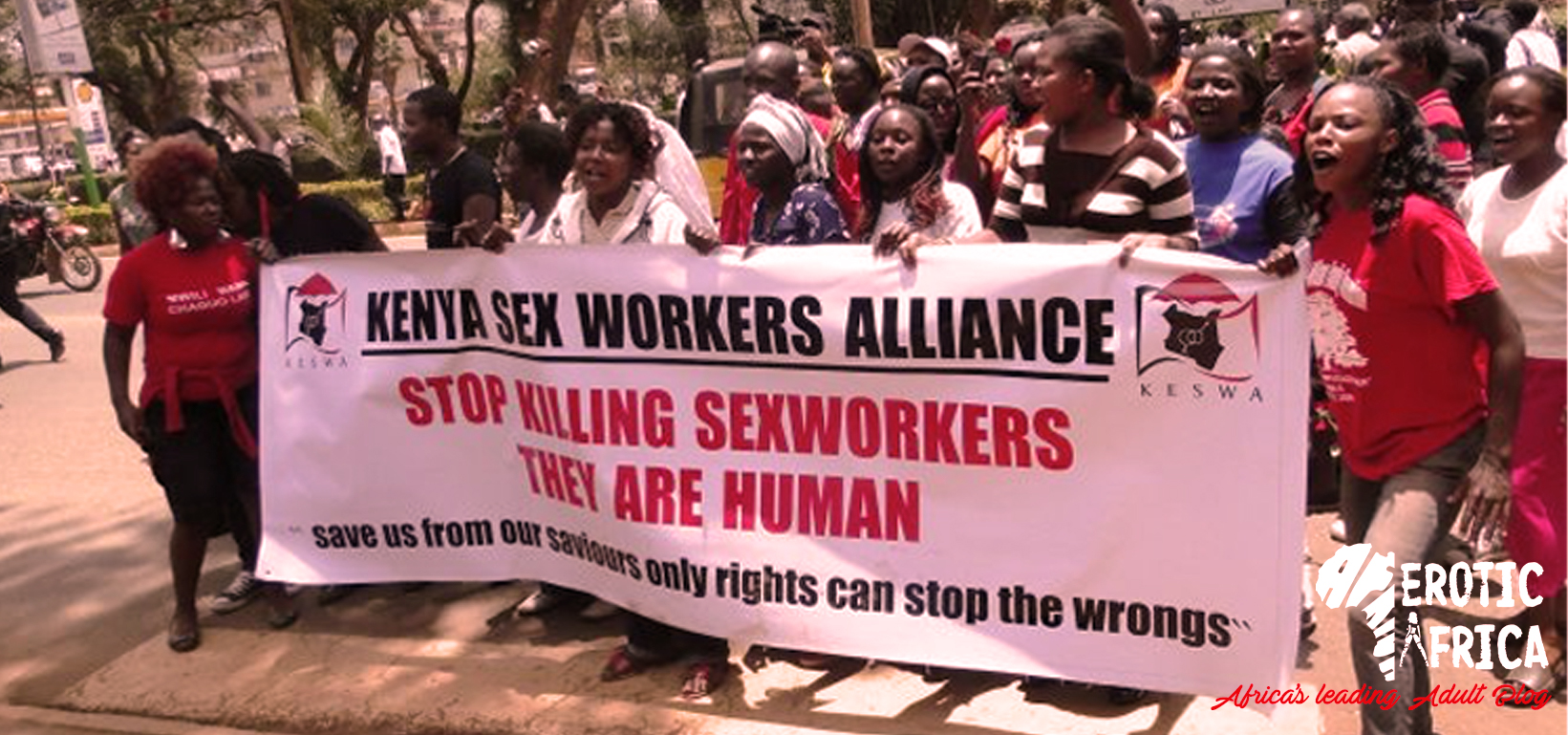Why 16 days of activism is a big deal for Sexworkers
Page Contents
16 days of activism kicks off
As the world begins the 16 days of activism, sex workers are hoping the world will at least for the next two weeks pay attention and hear their plight.
That they suffer as society turns a blind eye is not news but with the world now focusing on Gender Based Violence maybe just maybe their cries will get a listening ear.
16 Days: What is it and why is it trending?
25th November is the International Day for the Elimination of Violence against Women, marking the beginning of the 16 Days of Activism against Gender-Based Violence. The 2020 theme is “Orange the World: Fund, Respond, Prevent, Collect!”
The campaign, which will conclude on December 10th, seeks to raise awareness on the Elimination of Violence against Women. Gender-based violence affects somewhere between 35 and 70% of women globally, according to UN Women.
However, even where there are high rates of violence against women, sex workers experience a higher burden. Male, female, transgender, and gay sex workers world over but even more in Africa have never been more at risk especially coming at a time in the middle of a global pandemic.
Sex worker rights must be safeguarded
Apart from withstanding the daily societal stigma, discrimination and other forms of human rights abuses sex workers have experienced even more violence at the hands of authorities, clients and society in general since Covid-19 broke out.
As one country after another went into lockdowns, millions of escorts were left at their own devices with no one to turn to for help. Commercial sex is illegal in many countries – something gender activists affiliated with 16 days of activism hope will change sooner than later – which exposed sex workers as they received no social support from the government.
Pushed to the wall and having mouths to feed, some sex workers made the hard choice of going back to the streets where they were at the mercy of police officers and rogue clients. A sex worker narrowly escaped with her life in Uganda after a client attempted to strangle her and rob her blind. Quick response by her fellow sex workers is what saved her from becoming another sad statistics.
Sex workers in times of Covid-19
Anywhere your turned to from Cairo to Cape Town during Covid-19 than were you met with sad stories of sex workers struggling to stay afloat. In Zimbabwe, desperate sex workers who decided risking catching the deadly virus was bettter than starving at home had to pay up to $5 a day to police to be allowed to operate without being arrested, according to Zimbabwe Human Rights Forum.
Situation wasn’t any better in Rwanda where sex workers with no money to buy food decided to forgo taking their life saving antiviral drugs. More than 45% of the estimated 12,000 sex workers in this tiny nation live with HIV, according to UNAIDS.
Even after the National Coordinator of Nigeria Sex Workers Association, Amaka Enemo, beseeched its members to stay at home for fear of spreading Covid-19, sex workers taking care of aged parents and sickly relatives had no option but risk it all by going back to the streets. The Global Network for Sex Work Projects (NSWP) warned in August in a report that access to condoms and lubricants during lockdowns had dwindled in Angola, Burundi, Cameroon, Democratic Republic of the Congo, Eswatini, Ethiopia, Kenya, Senegal and Tunisia further exposing sex workers to HIV/AIDs.
In the midst of Covid-19, many sex workers have also had to incur an extra cost of buying face masks, sanitizers and even temperature guns for themselves and their clients just to work and make their clients feel safe enough to get an erection. In the middle of a pandemic when clients are running thin and cash is hard to come by taking up this extra responsibility is no joke. Some sex workers took things even a notch higher and started donning raincoats while servicing clients so as to keep safe during the coronavirus pandemic.
Also Read: Sex workers on ‘dry spell’ after bars and brothels closed, lose over Sh20 million
Getting justice is a tall order
Whenever they get attacked in their line of work, getting justice is a tall order. Sex workers are frequently targeted by murderous clients mostly males who lure them under the guise of seeking sex services.
In most societies, sex workers still face stigma and this unfounded ‘unfairness’ is also prevalent in law enforces who sometimes brush off incidents related to sex workers. Men acting on sociopathic sadistic sexual impulses also believe the police won’t look as hard for a missing sex worker as they will for a more “respectable” victim. This means that their killers may have a better chance of escaping justice.
There is no shame in being a sex worker
As the 16 Days of Activism campaign kicks off, sex workers in Africa hope civil society, governments and NGOs will advocate for increased funding to ending violence against women resources, including funding shelters and hotlines but more importantly we can at least have a candid conversations with family and friends about the negative impact of violence against women and girls (VAWG) on individuals and communities.
“Sex work is simply work. For me it was honest work. I was a sex worker when I was young. It was hard but well paid. There’s no shame in it,” Margaret Moran Cho, an American stand-up comedian, actress, fashion designer, author, and singer-songwriter openly tweeted. That is the world sex workers across the globe dream of living in. Is it too hard to ask?
Also read: School closed? Students turn to sex work in droves and some say it’s ‘the best thing’
 2545
2545

